
Find Help
More Items From Ergsy search
-
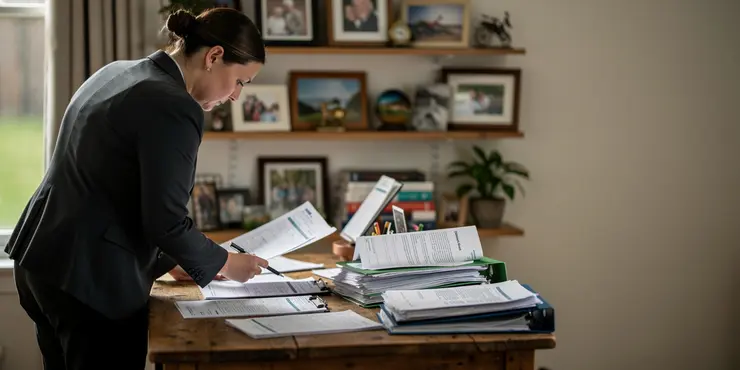
Who is responsible for paying the deceased’s tax debts?
Relevance: 100%
-

Are beneficiaries responsible for the deceased's tax debts?
Relevance: 99%
-

Can the executor use the deceased's assets to pay tax debts?
Relevance: 95%
-
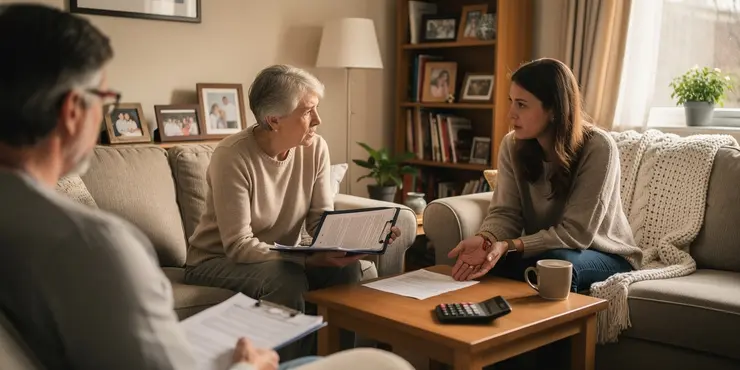
What Happens to Tax Debt After Death? (UK Laws)
Relevance: 80%
-

What is the role of an executor in handling tax debts?
Relevance: 78%
-

Do unpaid tax debts affect Inheritance Tax calculations?
Relevance: 70%
-

What happens to a deceased’s Income Tax if they were employed?
Relevance: 64%
-
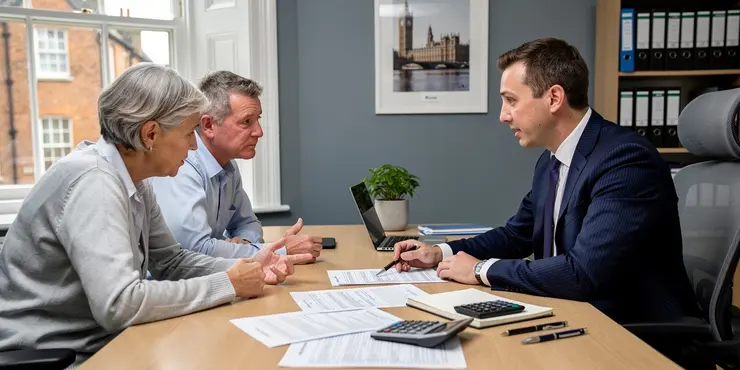
Do all beneficiaries pay the same inheritance tax rate?
Relevance: 60%
-

What if the estate does not have enough assets to pay all tax debts?
Relevance: 60%
-

What taxes need to be paid from the deceased’s estate?
Relevance: 57%
-
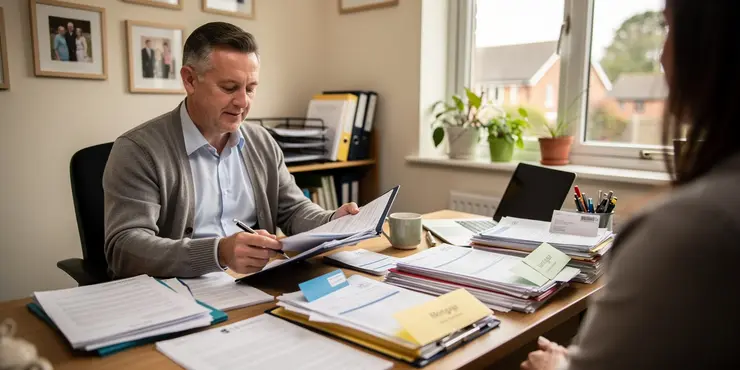
Is it necessary to complete a final tax return for the deceased?
Relevance: 55%
-
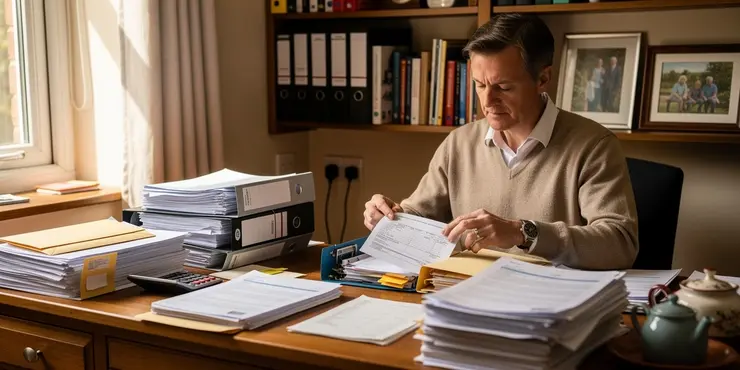
What should I do if I need help managing the tax affairs of the deceased?
Relevance: 52%
-

Who is responsible for paying Inheritance Tax?
Relevance: 49%
-

What is Inheritance Tax?
Relevance: 47%
-

Can I include previous year's tax debt in a new Time to Pay arrangement?
Relevance: 46%
-

Is there a difference between inheritance tax and estate tax?
Relevance: 45%
-
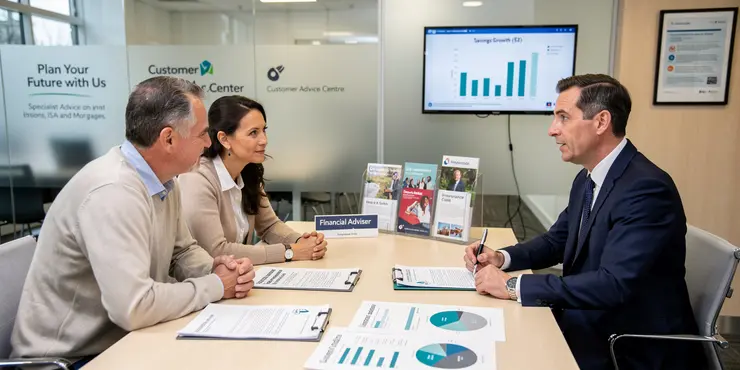
How does inheritance tax affect life insurance policies?
Relevance: 45%
-
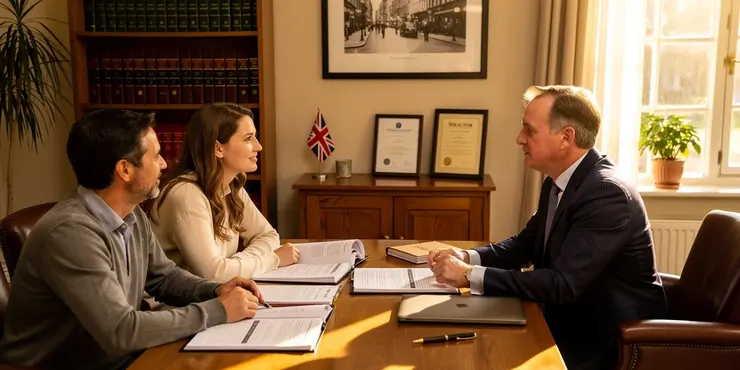
Wills, Probate and Tax Planning in the UK
Relevance: 44%
-

What is the process for paying inheritance tax?
Relevance: 44%
-

Who pays the inheritance tax?
Relevance: 42%
-

How does inheritance tax apply to life insurance policies?
Relevance: 42%
-

Are life insurance payouts subject to Inheritance Tax?
Relevance: 40%
-

Can I nominate a beneficiary for my firefighter pension benefits?
Relevance: 40%
-
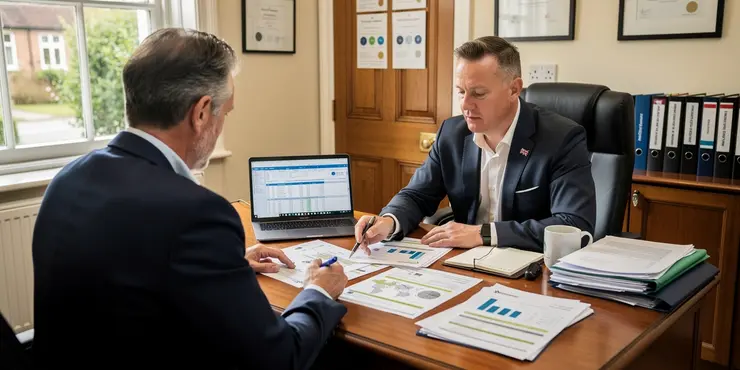
How do I value the estate for Inheritance Tax purposes?
Relevance: 39%
-

What assets are subject to inheritance tax?
Relevance: 39%
-

When is inheritance tax due?
Relevance: 38%
-
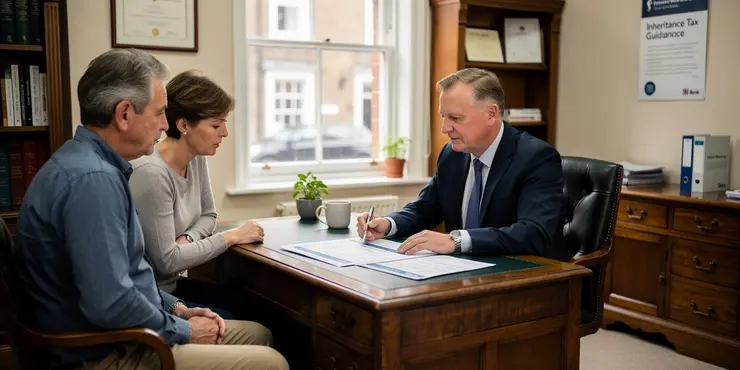
What is inheritance tax?
Relevance: 38%
-

When is inheritance tax due to be paid?
Relevance: 38%
-

Three Debt Free Methods in 2023 | Free Debt Calculator Tracker
Relevance: 38%
-
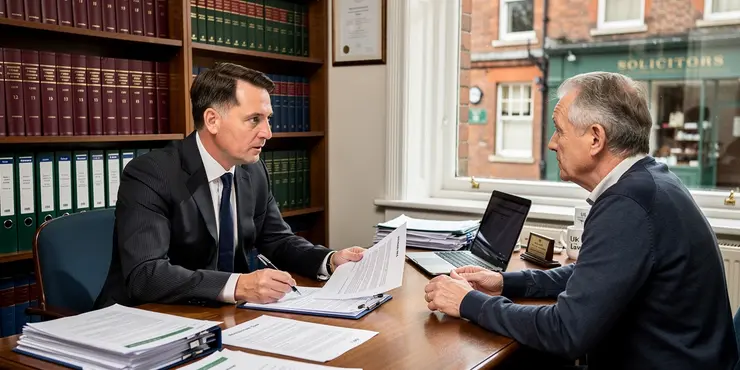
How and when do I pay Inheritance Tax when someone has died?
Relevance: 38%
-

How is inheritance tax calculated?
Relevance: 37%
-

How is the Inheritance Tax bill calculated?
Relevance: 37%
-

What is Inheritance Tax?
Relevance: 37%
-
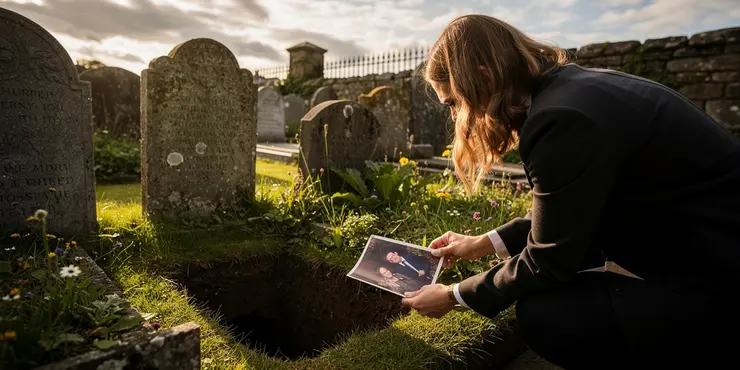
Can personal items be buried with the deceased?
Relevance: 36%
-

Are there any other reliefs available from inheritance tax?
Relevance: 36%
-

Which countries impose inheritance tax?
Relevance: 36%
-
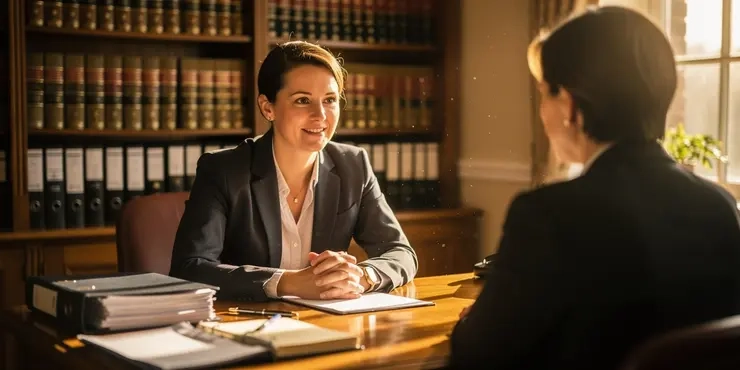
Will and Probate Solicitor Bath
Relevance: 35%
-

Does inheritance tax vary by state or region?
Relevance: 35%
-

Are there deductions available for inheritance tax?
Relevance: 35%
-

Can inheritance tax be deferred?
Relevance: 33%
Understanding Tax Debts Upon Death
When a person passes away in the UK, their estate, which comprises all their assets and liabilities, becomes responsible for settling any outstanding debts, including tax debts. These debts must be addressed before distributing the estate to the beneficiaries. It is crucial to understand how tax debts are handled and the responsibilities of beneficiaries in this process.
The Role of the Executor
The executor of the estate, as appointed by the deceased’s will, is tasked with administering the estate. This includes gathering the deceased’s assets, paying debts and taxes, and distributing the remaining assets to the beneficiaries. The executor must ensure that all taxes are accurately calculated and paid before distributing the estate.
Beneficiaries and Inheritance
Beneficiaries are the individuals named in a will to receive assets from the estate. In general, beneficiaries are not directly responsible for paying the deceased’s tax debts out of their pocket. Instead, the debts are settled from the estate itself. However, the payment of these debts could reduce the value of the estate, thereby affecting what beneficiaries eventually receive.
Assets and Liabilities
Until the debts and tax liabilities are settled, assets in the estate cannot be distributed to the beneficiaries. This ensures creditors, including tax authorities, are paid before any distribution. In cases where liabilities exceed the assets, the estate is considered insolvent, and beneficiaries may receive nothing. Importantly, beneficiaries do not incur liability beyond the value of the estate.
Potential Responsibilities of Beneficiaries
While beneficiaries are not typically responsible for the deceased’s tax debts, there are situations where they might indirectly be affected. If they receive gifts or inheritance before the final settlement of tax liabilities and the estate is later found to owe taxes, those gifts may need to be returned or monetary adjustments might be required. Furthermore, if inheriting property or other assets, the value of these can be impacted by outstanding debts and the need for their settlement from the estate.
Legal and Financial Advice
For executors and beneficiaries alike, gaining legal and financial advice can be beneficial to navigate the complexities surrounding tax debts and the management of an estate. These professionals can offer guidance and assistance to ensure compliance with tax laws and proper estate administration, reducing the risk of personal liability due to improper handling of the estate’s finances.
Final Notes
In summary, while beneficiaries in the UK are generally not responsible for the deceased’s tax debts, the value of their inheritance may be impacted due to the need for settling debts from the estate. Executors carry the primary responsibility for ensuring all debts are settled appropriately. Understanding these processes is essential to manage expectations and responsibilities concerning inheritance.
Understanding Tax Debts When Someone Dies
When someone dies in the UK, their money and belongings are called an estate. This estate must pay off any money owed, like taxes, before giving out anything to the people named in the will (called beneficiaries). It is important to know how these debts are settled and what people getting the inheritance should know.
The Executor's Job
The executor is the person chosen in the will to take care of the estate. The executor gathers all the money and belongings, pays off any debts and taxes, and then gives out what is left to the beneficiaries. They must make sure all taxes are paid before giving out anything from the estate.
Beneficiaries and Receiving Inheritance
Beneficiaries are people who get money or belongings from the estate. Normally, they do not have to pay the taxes owed by the person who passed away from their own money. The debts are paid from the estate. However, because of this, the amount beneficiaries receive might be less.
Money and Debts
No money or belongings can be given to beneficiaries until all debts and taxes are paid. This makes sure people who are owed money, like the tax office, get paid first. If the estate has more debts than money, beneficiaries might get nothing. Beneficiaries only get what is left and do not have to pay anything extra.
What Beneficiaries Need to Know
Usually, beneficiaries do not pay the deceased’s taxes. But, if they get gifts or money before everything is settled, they might have to give some back if the estate owes taxes later. Things they inherit, like property, might also be worth less because of debts that need to be paid from the estate.
Getting Help
Executors and beneficiaries should ask for legal and financial advice. This helps them understand how to deal with taxes and money after someone dies. Experts can guide them to follow rules and make sure everything is done correctly with the estate.
Final Thoughts
In short, beneficiaries in the UK usually do not pay the taxes owed by someone who dies. But, the amount they get as inheritance might be less because the estate needs to pay off debts first. Executors have the main job of making sure everything is paid properly. Knowing how all this works helps people understand what to expect when dealing with inheritance.
Frequently Asked Questions
Useful Links
This website offers general information and is not a substitute for professional advice.
Always seek guidance from qualified professionals.
If you have any medical concerns or need urgent help, contact a healthcare professional or emergency services immediately.
Some of this content was generated with AI assistance. We’ve done our best to keep it accurate, helpful, and human-friendly.
- Ergsy carfully checks the information in the videos we provide here.
- Videos shown by Youtube after a video has completed, have NOT been reviewed by ERGSY.
- To view, click the arrow in centre of video.
- Most of the videos you find here will have subtitles and/or closed captions available.
- You may need to turn these on, and choose your preferred language.
- Go to the video you'd like to watch.
- If closed captions (CC) are available, settings will be visible on the bottom right of the video player.
- To turn on Captions, click settings .
- To turn off Captions, click settings again.
More Items From Ergsy search
-

Who is responsible for paying the deceased’s tax debts?
Relevance: 100%
-

Are beneficiaries responsible for the deceased's tax debts?
Relevance: 99%
-

Can the executor use the deceased's assets to pay tax debts?
Relevance: 95%
-

What Happens to Tax Debt After Death? (UK Laws)
Relevance: 80%
-

What is the role of an executor in handling tax debts?
Relevance: 78%
-

Do unpaid tax debts affect Inheritance Tax calculations?
Relevance: 70%
-

What happens to a deceased’s Income Tax if they were employed?
Relevance: 64%
-

Do all beneficiaries pay the same inheritance tax rate?
Relevance: 60%
-

What if the estate does not have enough assets to pay all tax debts?
Relevance: 60%
-

What taxes need to be paid from the deceased’s estate?
Relevance: 57%
-

Is it necessary to complete a final tax return for the deceased?
Relevance: 55%
-

What should I do if I need help managing the tax affairs of the deceased?
Relevance: 52%
-

Who is responsible for paying Inheritance Tax?
Relevance: 49%
-

What is Inheritance Tax?
Relevance: 47%
-

Can I include previous year's tax debt in a new Time to Pay arrangement?
Relevance: 46%
-

Is there a difference between inheritance tax and estate tax?
Relevance: 45%
-

How does inheritance tax affect life insurance policies?
Relevance: 45%
-

Wills, Probate and Tax Planning in the UK
Relevance: 44%
-

What is the process for paying inheritance tax?
Relevance: 44%
-

Who pays the inheritance tax?
Relevance: 42%
-

How does inheritance tax apply to life insurance policies?
Relevance: 42%
-

Are life insurance payouts subject to Inheritance Tax?
Relevance: 40%
-

Can I nominate a beneficiary for my firefighter pension benefits?
Relevance: 40%
-

How do I value the estate for Inheritance Tax purposes?
Relevance: 39%
-

What assets are subject to inheritance tax?
Relevance: 39%
-

When is inheritance tax due?
Relevance: 38%
-

What is inheritance tax?
Relevance: 38%
-

When is inheritance tax due to be paid?
Relevance: 38%
-

Three Debt Free Methods in 2023 | Free Debt Calculator Tracker
Relevance: 38%
-

How and when do I pay Inheritance Tax when someone has died?
Relevance: 38%
-

How is inheritance tax calculated?
Relevance: 37%
-

How is the Inheritance Tax bill calculated?
Relevance: 37%
-

What is Inheritance Tax?
Relevance: 37%
-

Can personal items be buried with the deceased?
Relevance: 36%
-

Are there any other reliefs available from inheritance tax?
Relevance: 36%
-

Which countries impose inheritance tax?
Relevance: 36%
-

Will and Probate Solicitor Bath
Relevance: 35%
-

Does inheritance tax vary by state or region?
Relevance: 35%
-

Are there deductions available for inheritance tax?
Relevance: 35%
-

Can inheritance tax be deferred?
Relevance: 33%


